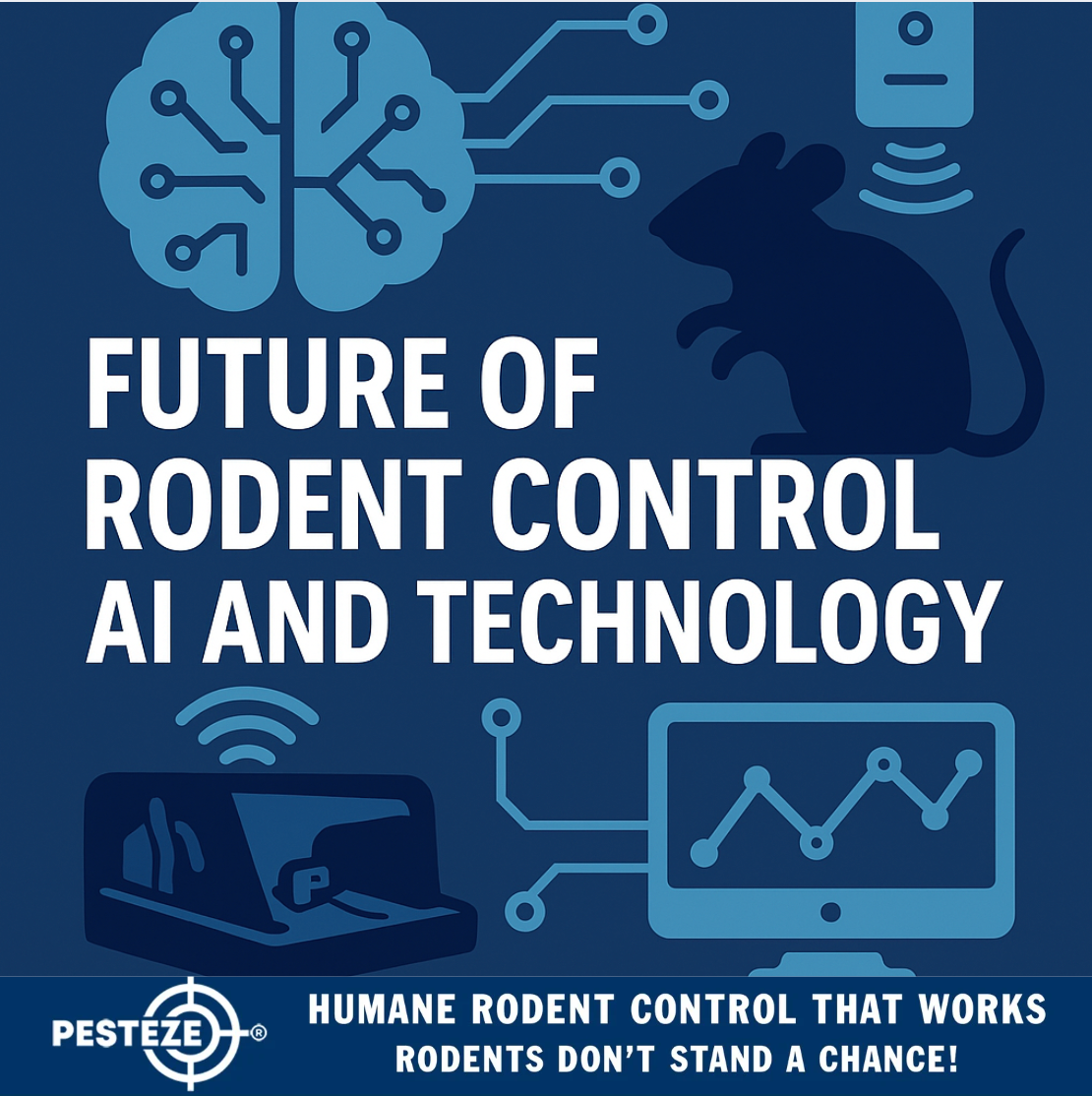FUTURE OF RODENT CONTROL: AI AND TECHNOLOGY

FUTURE OF RODENT CONTROL: AI AND TECHNOLOGY
SUMMARY
Rodent control is evolving with the rise of artificial intelligence and advanced technology. This guide explores how AI-powered traps, smart sensors, and data-driven strategies are shaping the future of pest management.
FEATURES
-
AI-Powered Traps: Smart traps that detect and capture rodents efficiently.
-
Smart Sensors: Monitor rodent movement in real-time with precision.
-
Data Analytics: Predict infestations using behavior and activity patterns.
-
Automated Alerts: Receive instant notifications of rodent activity.
-
Eco-Friendly Solutions: Reduce chemical use with smarter systems.
-
Integrated Smart Homes: Connect rodent control with IoT devices.
DESCRIPTION
The future of rodent control is being transformed by artificial intelligence and cutting-edge technology. Traditional methods like snap traps and poisons are giving way to smart, sustainable solutions that improve efficiency and reduce environmental impact. By leveraging AI, sensors, and IoT devices, pest management is entering a new era of precision and automation.
AI-powered traps are among the most promising innovations. Unlike traditional traps, these smart devices can detect rodent presence using motion sensors, infrared technology, and even image recognition. Once triggered, they capture rodents quickly and humanely while logging data for future analysis. Some systems can even differentiate between rodents and non-target species, making them more ethical and effective.
Smart sensors play a critical role in modern rodent control. These small, discreet devices can be placed throughout buildings to monitor rodent activity in real-time. By tracking movement patterns, pest managers can pinpoint hotspots and address infestations before they spread.
Data analytics further enhances rodent management. AI systems can collect and analyze behavioral data—such as entry points, nesting habits, and foraging times—to predict infestations before they happen. This proactive approach saves time, money, and reduces the need for widespread chemical use.
Automation is another key advantage. Many modern systems provide instant alerts to homeowners, businesses, or pest control professionals when rodent activity is detected. This allows for quick responses and ensures infestations are addressed immediately.
Eco-friendly solutions are central to technology-driven pest control. By replacing poisons and harmful chemicals with intelligent systems, pest management becomes safer for families, pets, and the environment.
Finally, integration with smart home and IoT devices opens new possibilities. Imagine a connected system where rodent sensors communicate with security cameras, automated door seals, and air quality monitors—creating a fully integrated pest-free environment.
The future of rodent control lies in combining AI intelligence with sustainable practices. By embracing technology, homeowners and businesses can look forward to safer, more efficient, and environmentally responsible pest management.
- Saharsh Bansal


Comments 0